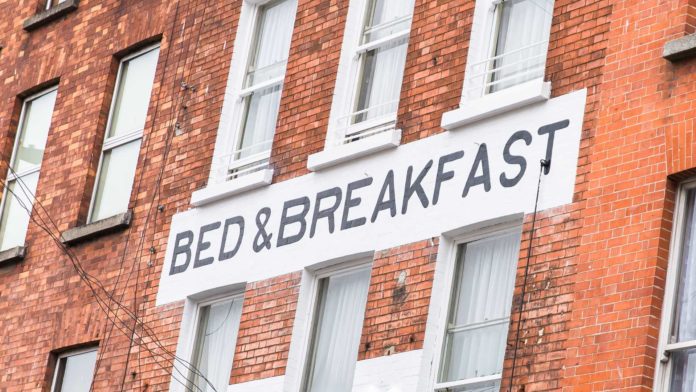Key Highlights
- Collapse in tourism due to coronavirus hit Airbnb listings hard
- Rental prices and demand have substantially dropped
- Current surge in available rental properties in Dublin
From 2016, the supply of Dublin-area rental market rose from 1,700 full-home listings to over 4,500 listings in pre-COVID, early 2020, according to Inside Airbnb. Those listings declined to approximately 3,900 during August of 2020, according to a report by Ronan Lyons, an assistant professor of economic at Trinity College Dublin for the Irish real estate website Dart.ie.
Download Your FREE Ultimate Agent Survival Guide Now. This is the exact ‘do this now’ info you need. Learn NOW How to Access All The Bailout Program Cash You Deserve. Including Unemployment and Mortgage Forbearance Plans. To Access the Ultimate Agent Survival Guide Now Text The Word SURVIVAL to 47372. 4 Msgs/Month. Reply STOP to cancel, HELP for help. Msg&data rates may apply. Terms & privacy: slkt.io/JWQt
This deceptively small shift of short-term listings has had an outsize effect to Dublin’s housing market and essentially flooded the longer-term rental market. Essentially, the long-term rental listings in the Dublin area rose nearly 50%, an increase of +1,000 rental homes, when compared to last year.
Lyons said, “The Dublin market in normal conditions could easily take 3,000 properties without necessarily batting an eyelid…that’s about one and a half months’ additional supply that came on, and at a time when people aren’t moving to the city.”
What’s happening via Airbnbs in Dublin is the same thing that’s happening in London and Paris housing markets. Owners of investment properties are simply abandoning the short-term rental market and repositioning what were their Airbnb properties onto long-term listings. The result? A huge spike of availability in parts of these large European housing markets where short-term (normally Airbnb) listings were concentrated.
Despite more current long-term availability, Lyons believes “the underlying shortage of rental accommodations…is very acute.” Investment property owners (Airbnb owners) are just filling their units with long-term tenants to accomplish two objectives: generating rental income and not lowering their rental prices.
Lyons said, “If you lower your rent now, the rent you set in one, three and 10 years will reflect the cut you make today. So, however open landlords might be to haggling ’at the door’ and offering a month or two free rent at the start to sweeten the day, they may be very reluctant to flag in an ad that they are indeed cutting their rent.”
Naturally, industry experts attribute much of the sudden rise in long-term rental listings in major European cities to the drop in Airbnb (short term) listings due to the COVID pandemic.
Thanks to The New York Times International Real Estate Section.
Also read: Podcast: Tim and Julie Harris’s Biggest Business Regrets (Personal) Part 2, UK Housing Market to End 2020 -15% Below 2019, Podcast: Warning: CoronaVirus Fears Causing Housing Crash? | Your 9 Step Action Plan

























